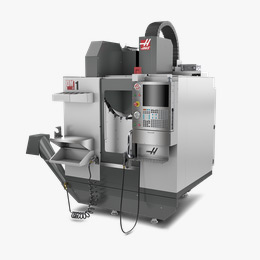
Dec . 04, 2024 23:38 Back to list
outdoor emergency power supply for home factories
Outdoor Emergency Power Supply for Home Factories
In today's fast-paced world, the reliance on electricity is more pronounced than ever. For home factories, which are often small-scale operations run from private residences, a consistent power supply is crucial not only for daily tasks but also for ensuring productivity and safety. However, the unpredictability of power outages can cripple operations. This is where outdoor emergency power supplies come into play, offering a reliable and effective solution.
Understanding Outdoor Emergency Power Supplies
Outdoor emergency power supplies encompass a range of devices that provide backup power during outages. These can include portable generators, solar power systems, and battery storage solutions. The essence of these systems lies in their ability to deliver electricity when the grid fails, ensuring that home factories can continue to operate smoothly despite external challenges.
The Importance of Backup Power
Home factories often rely on specialized equipment that is sensitive to power interruptions. This can include tools for woodworking, metal fabrication, or even small-scale food production. A sudden loss of power can not only halt production but can also damage sensitive machinery or spoil products. Therefore, investing in an outdoor emergency power supply is not just a precautionary measure; it’s an essential part of operational planning.
Types of Emergency Power Supplies
1. Portable Generators These are perhaps the most common form of backup power for home factories. Available in various sizes, portable generators use gasoline, diesel, or propane to produce electricity. They are easy to transport and can power several tools simultaneously. However, it's vital to operate them outside to prevent carbon monoxide poisoning and to ensure proper ventilation.
2. Solar Power Systems With the increasing emphasis on sustainability, solar power systems have gained popularity. They consist of solar panels, an inverter, and battery storage. The initial investment may be higher, but the long-term savings on electricity bills and the benefits of being eco-friendly make them an attractive option. Solar power systems can also be equipped with generators for cloudy days or during extended outages.
3. Battery Storage Solutions These compact devices store electricity generated from various sources, including solar panels or the grid itself. During a power outage, they supply energy seamlessly without the noise or emissions associated with generators. They are particularly useful for running sensitive electronics, lighting, and small machinery.
outdoor emergency power supply for home factories

Choosing the Right Power Supply
Selecting the right outdoor emergency power supply depends on various factors including the size of the home factory, the type of equipment used, and budget constraints. Consider the following
- Power Needs Evaluate the wattage required by your tools and machinery. This will help you decide whether to go for a small portable generator or a more robust solar system with battery storage.
- Runtime Determine how long you expect power outages to last. If you require extended runtimes, ensure that your generator or battery solution can handle your operational demands for the necessary duration.
- Portability If your operation involves moving tools or machinery frequently, a portable generator may be beneficial. In contrast, a fixed solar power system could be more suitable for static setups.
- Fuel Type and Availability Consider the fuel sources available in your area. While gasoline and propane generators are widely used, solar options offer the advantage of being renewable and dependent on the sun.
Maintenance and Safety Considerations
While outdoor emergency power supplies provide vital backup electricity, proper maintenance and safety precautions are essential. Regular checks ensure that generators are functioning correctly, battery systems remain charged, and solar panels are free of debris. Additionally, always follow safety guidelines, especially when operating generators, to prevent accidents and ensure the well-being of anyone in the vicinity.
Conclusion
In the landscape of home factories, outdoor emergency power supplies serve as a lifeline during unforeseen circumstances. They not only ensure operational continuity but also provide peace of mind. By understanding the available options and making informed choices, home factory owners can safeguard their investments and maintain productivity, even in the face of power disruptions. In an age reliant on electricity, preparation is key, and investing in a reliable backup power system is a step in the right direction.
-
AI-Powered EMS with GPT-4-Turbo | Efficiency Boost
NewsAug.01,2025
-
Optimized Storage System for GPT-4-Turbo | High Performance
NewsJul.31,2025
-
AI Energy Management System w/ GPT-4 Turbo Efficiency
NewsJul.31,2025
-
High-Performance Energy Storage System for Reliable Power Solutions
NewsJul.30,2025
-
Advanced EMS Solutions for Energy Management System & Storage Battery Companies
NewsJul.29,2025
-
Intelligent Energy Management for Homes - Efficient Storage Solutions
NewsJul.29,2025























